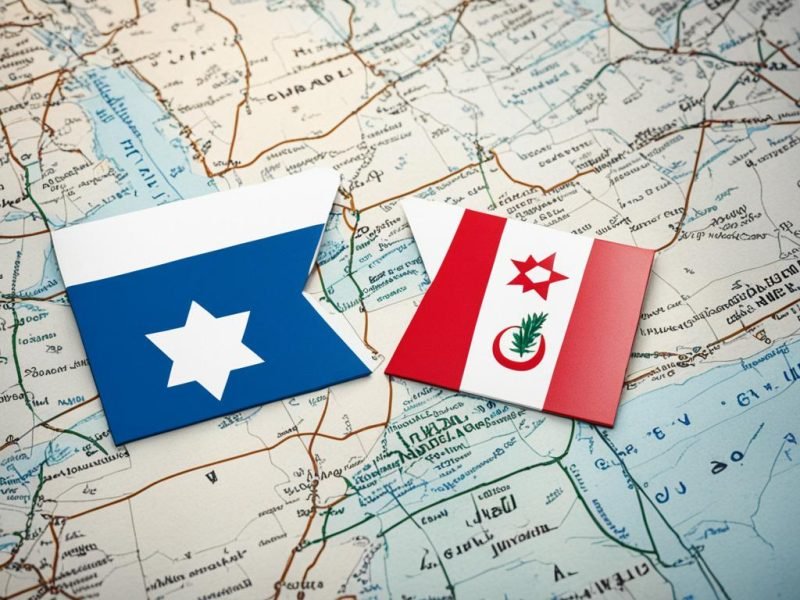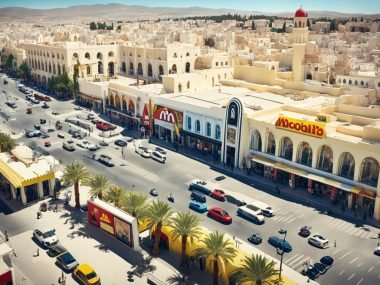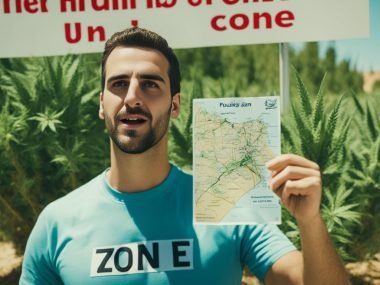In the labyrinth of Middle Eastern politics, we ask: Does Tunisia recognize Israel? Let’s look at how Tunisia’s foreign policy might hint at this. We’ll explore Tunisia-Israel relations. And see if history and current actions suggest any secret acceptance or if they don’t.
Tunisia, a once moderate Sunni state, has a complex story. It was home to a Jewish community but is now swayed by neighbors like Algeria. Despite this, its leaders sometimes seem open to Israel. They stopped laws against normalizing relations with Israel. But is this real recognition or just a political move?
The question gets deeper with Tunisia in international events like Sea Breeze 2021. Does this mean Israel-Tunisia diplomatic relations are warming? Or are these just practical moves without real diplomatic meaning?
Key Takeaways
- Understanding the complexity of Tunisia’s foreign policy and its stance on Israel.
- Exploring the factors that influence Tunisia-Israel relations.
- Examining Tunisia’s participation in international exercises and what that means for potential recognition of Israel.
- Discovering the role that regional dynamics play in shaping Tunisia’s diplomatic decisions.
- Assessing Tunisia’s official position on the recognition of Israel within the broader geopolitical landscape.
Understanding Tunisia-Israel Diplomatic History
The story of Tunisia and Israel is full of ups and downs. Their history is marked by key events and shared goals. It involves both teamwork and disagreement, stretched over many years.
Early Relations and Search for Support
After gaining independence, Tunisia looked for help to build its country in the 1950s. They reached out to Israeli labor leaders. This step started quiet talks between the two countries.
The Impact of Operation Wooden Leg
In 1985, Israel launched an attack called Operation Wooden Leg in Tunis. This act hit the peace talks hard. It also made tensions worse, causing loss of life.
Low-level Diplomatic Ties and the Madrid Conference
The Madrid Conference in 1991 opened the door for talks again. In 1996, Tunisia and Israel set up “Interest Sections.” However, this move didn’t last due to new conflicts.
| Event | Year | Impact on Tunisia-Israel Recognition |
|---|---|---|
| Early Interactions | 1950s | Initial support and consultancy |
| Operation Wooden Leg | 1985 | Negative impact, increased hostilities |
| Madrid Conference | 1991 | Temporary improvement in diplomatic ties |
| Interest Sections Established | 1996 | Formal but low-level diplomatic engagement |
| Second Intifada | Early 2000s | Closure of diplomatic channels |
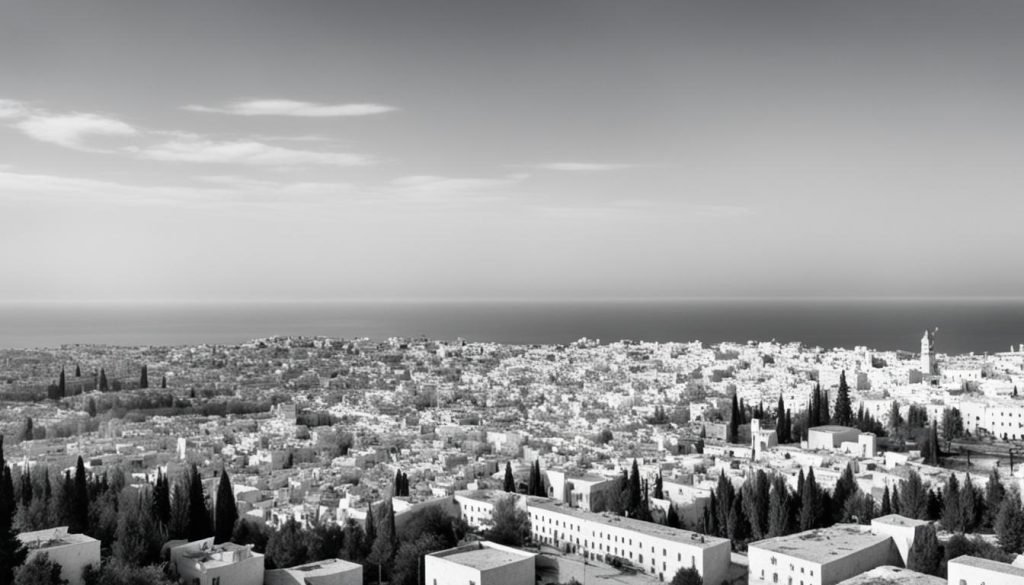
The Role of Tunisia in the Middle East Peace Process
Tunisia has been a key player in Middle East peace talks. It has worked quietly in big talks. Its help in the Oslo I Accord shows a critical side of Tunisia and Israel relations.
Involvement in Secret Talks and the Oslo I Accord
In the early 1990s, Tunisia hosted secret talks between the PLO and Israeli officials. These talks were key for peace efforts, leading to the Oslo I Accord. Tunisia’s role helped start peace talks in the region.
Internal Political Dynamics Influencing Foreign Policy
Tunisia’s inside politics greatly affect its world relations, including with Israel. The Ennahda party’s support for the BDS movement shows some resistance to formal talks. Yet, these political details show Tunisia’s tricky foreign policy.
Tunisia-Israel relations change with each government’s approach to Middle East diplomacy. The table below shows how different policies affected their diplomatic relations over time:
| Period | Administration | Policy Approach | Impact on Relations |
|---|---|---|---|
| 1992-1999 | Ben Ali’s Government | Low-Level Diplomatic Engagement | Mild Improvement in Communications |
| 2000-2010 | Ben Ali’s Government | Interruption of Ties | Closure of Interest Sections |
| 2011-Present | Post-Revolution Tunisian Governments | Varied, Mostly Non-engagement | Stagnation and Occasional Hostility |
Tunisia’s changing policies highlight the complex nature of Middle East diplomacy. Its role in peace processes shows its regional influence, but internal politics shape its diplomacy.
Current Status of Tunisia-Israel Relations
In my exploration, I found that Israel and Tunisia have a complex relationship. Tunisia-Israel Conflict Status changed a lot, especially during big events like the Second Intifada.
Shifts in Policy Post Second Intifada
The Second Intifada was a key moment for Israel-Tunisia Diplomatic Relations. President Zine El Abidine Ben Ali ended the low-level diplomatic ties. This move deeply affected Tunisia’s foreign policy towards Israel over the years.
Multinational Exercises and Legislative Proposals
Even with tough diplomatic ties, Tunisia joined global drills such as Sea Breeze 2021. This shows they still interact with the world, including Israel. Sea Breeze 2021 On the home front, Tunisia has debated normalizing ties with Israel. Some laws were proposed to make this illegal, but not all passed due to presidential vetoes. This reveals a complex opinion among Tunisia’s leaders.
| Year | Event | Impact on Tunisia-Israel Relations |
|---|---|---|
| 2001 | End of Low-level Diplomatic Ties Post-Second Intifada | Severance of formal diplomatic communications |
| 2021 | Participation in Sea Breeze 2021 | Collaborative though non-diplomatic military engagement |
| Various | Legislative Attempts | Intermittent presidential interventions prevent total criminalization of normalization |
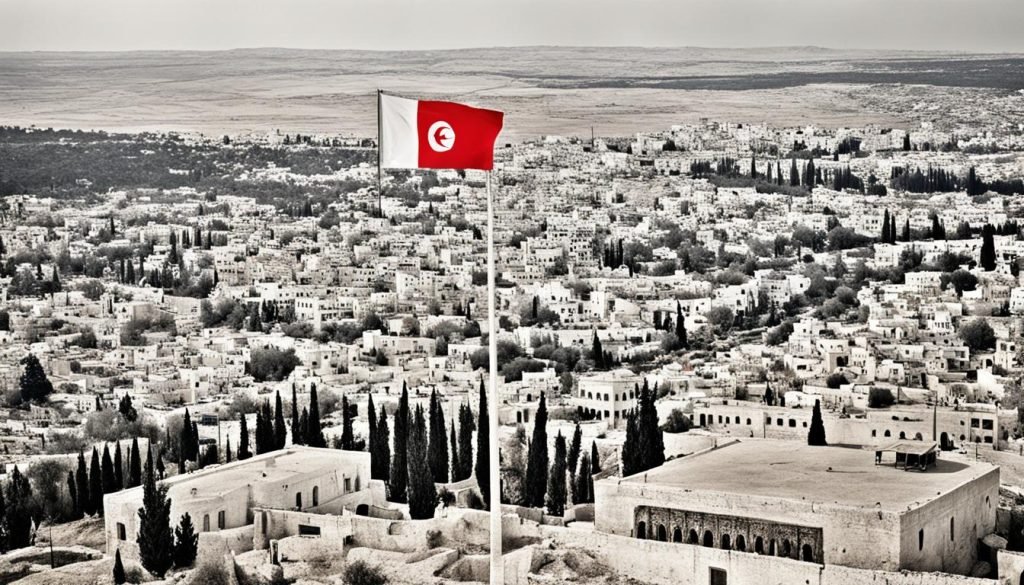
Comparative Analysis: Tunisia’s Stance vs. Other Arab Nations
Tunisia handles the Arab-Israeli conflict differently than other Arab countries. Unlike Egypt or Jordan, Tunisia has not signed peace treaties like the Abraham Accords. Its decisions are based on its own political situation.
The big Jewish community in Djerba affects Tunisia’s foreign policy too. This community is important to Tunisia’s culture. It influences how Tunisia deals with other countries.
Tunisia has not joined the Abraham Accords, which show peace between Israel and some Arab nations. This is due to Tunisia wanting to stay safe and sticking to its policies. It shows a more careful approach than some others.
Tunisia’s cautious stance is shaped by regional politics and internal opposition to Israel. These factors make Tunisia’s diplomacy stand out in the Middle East.
In the end, despite the new paths made by the Abraham Accords, Tunisia follows its own route. This is because of its unique social and political challenges. It shows Tunisia’s special role in dealing with the Arab-Israeli conflict.
Does Tunisia Recognise Israel?
I’ve looked closely at how Tunisia views Israel. It’s a complex issue. Officially, they don’t recognize Israel. Their laws even try to make dealing with Israel a crime. But, the President of Tunisia, Kais Saied, stopped some of these laws. This shows Tunisia’s foreign policy is not simple, especially after the Arab Spring.
Tunisia’s Legislative Approach to Israel
Tunisia’s government has tried to make rules against Israel. They want to make it illegal to have any ties with Israel. But it’s not all clear-cut. The President can stop these moves. This might mean Tunisia is still figuring out its role in world politics while watching how others act.
International Relations in the Wake of the Arab Spring
After the Arab Spring, Tunisia is trying to find its way. They are balancing old friendships and new global changes. Their policies are being shaped by a complicated world. They need to think about international help and alliances. Even though Tunisia doesn’t officially recognize Israel, their actions show they are thinking carefully about their place in the world.

